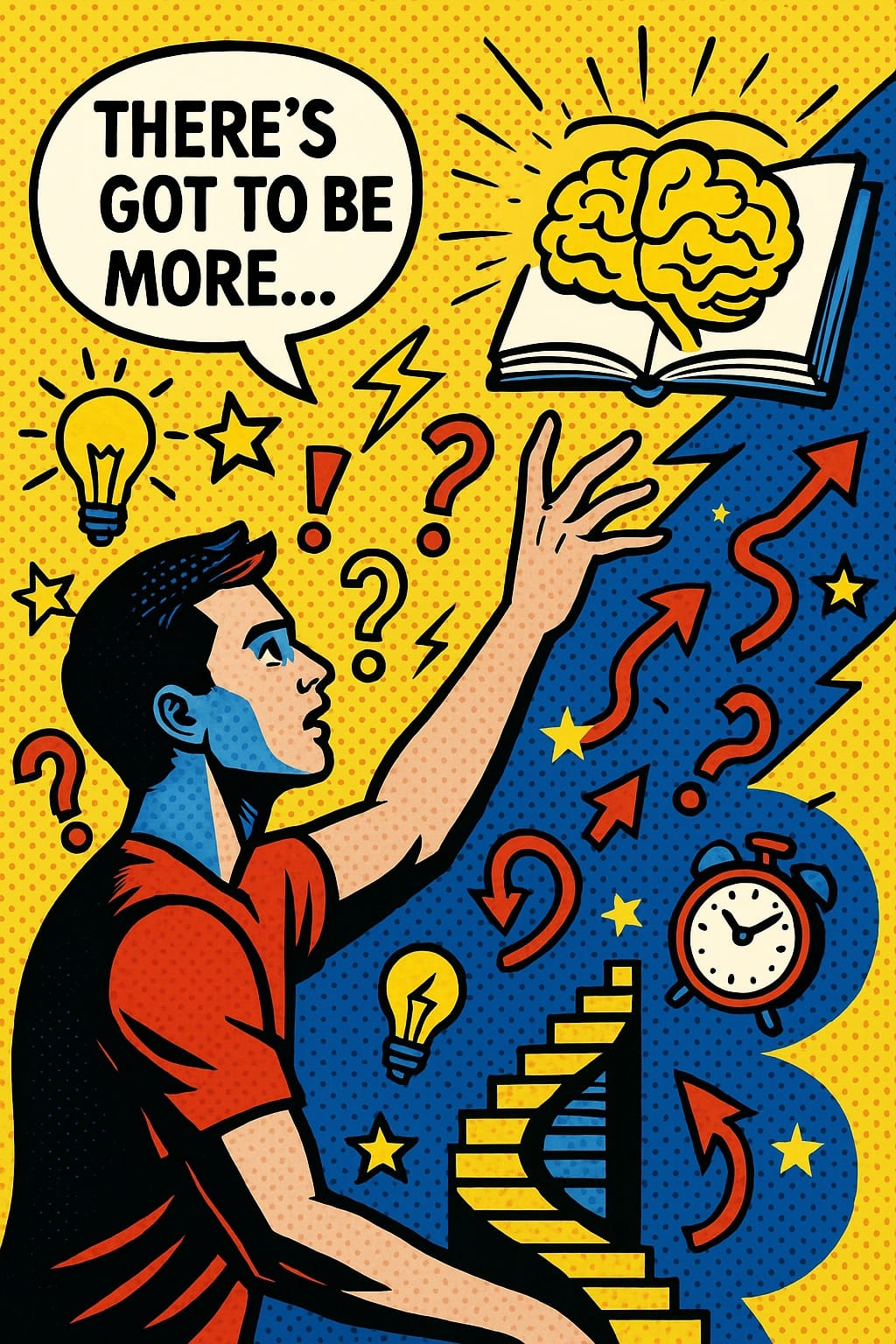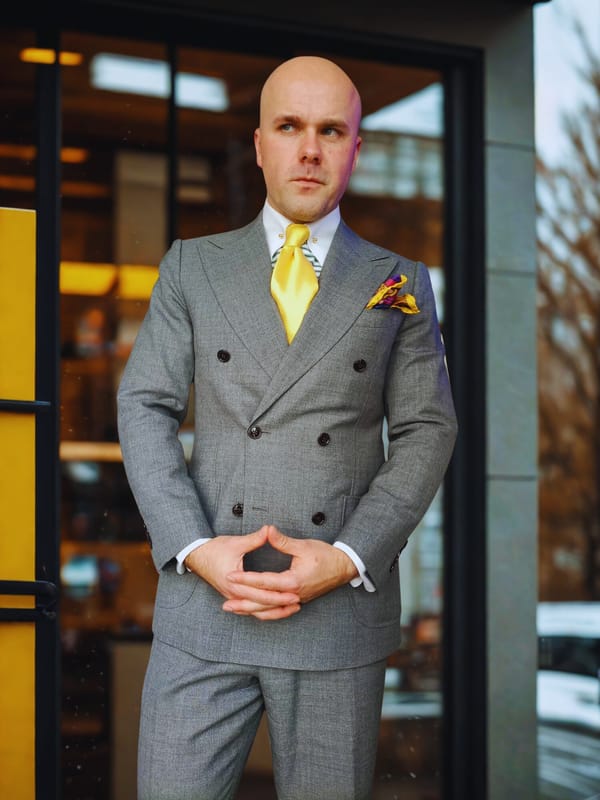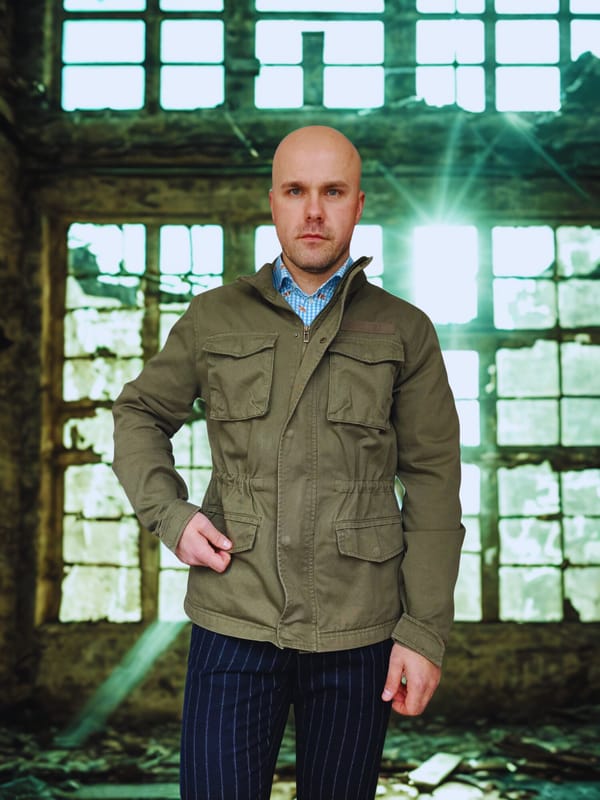The Hunger for Knowledge: Why We Never Feel Complete
We aren’t hungry just for food—we hunger for meaning, truth, and something better. But can that hunger ever be satisfied? A deeply human, philosophical take.

No time to read? listen here
There’s a peculiar kind of hunger that doesn't begin in the stomach. It begins in the soul—or whatever part of us aches when we stare at the ceiling at 2 a.m. wondering what it all means. It’s a hunger not for food or shelter, but for understanding, truth, and the elusive state we call better.
Can such a hunger ever be satiated? Or are we cursed—blessed, maybe—to always want more?
Why We Crave Knowledge: The Fire Inside.
Let’s start with the obvious: we are not born complete. We arrive half-baked, full of potential, but raw and confused. And unlike animals that quickly learn the ropes of survival—eat, sleep, run—we’re thrown into a jungle of ideas, values, ambiguities, and choices. So we learn. Or we suffer.
Our craving for knowledge is not merely curiosity—it is existential necessity. Without understanding, we’re blind in a minefield. We intuit that the unknown can kill us—physically, emotionally, or spiritually. So we seek maps. We read, observe, ask, and Google. But there’s more to it than survival.
There is something noble—divine, even—in the very act of knowing. To learn is to order chaos. To reduce the dragons of the unknown into pets of the familiar. In mythological terms, it is the hero’s journey—descending into ignorance to return with the fire of wisdom.
And we admire this journey in others. We admire the sage, the philosopher, the self-made individual who was once lost but found orientation through knowledge. Not because they memorized trivia, but because they transformed.
The Ache to Be Better: A Feature, Not a Bug.
Why do we want to improve? Why does “good enough” never seem good enough?
In Jordan Peterson’s words, we are beings caught between chaos and order. We’re not gods, yet we’re not beasts. We are becoming. We are creatures of trajectory. That means our psychological well-being is linked not to where we are, but where we’re going—or believe we’re going.
This is why stagnation is so deadly. When people lose a sense of progress, they descend into bitterness, depression, nihilism. Life becomes meaningless not because it lacks pleasure, but because it lacks direction.
Improvement, then, is not luxury—it’s survival. When we strive, we live. When we give up, we rot.
But here’s the tragic twist: better has no finish line. No matter how much you grow, you will see further horizons. You can read a thousand books and feel even dumber than when you started—because now you know how much you don’t know. The hunger grows with every bite.
Is the Hunger Ever Satisfied?
Let’s be honest: probably not.
Even the wisest minds die wondering. Even the most successful people feel inadequate, often haunted by their next challenge. This doesn’t mean knowledge is worthless or that growth is futile. It means the point is not the destination—it’s the journey.
Satisfaction, then, may come not from having knowledge, but from seeking it. From aligning yourself with the process of becoming. The moment you stop craving, you stop living. The fire goes out.
As Peterson might say, your life is not measured by comfort, but by meaning, and meaning comes from voluntary confrontation with what you do not yet understand. It’s the act of aiming up, of taking responsibility, of choosing to climb rather than coast.
The Painful Beauty of Never Arriving.
It can be exhausting. This endless mountain. This inner whisper saying, you could do more, be more, know more. But maybe the whisper isn’t there to torment you. Maybe it’s the clearest sign that you’re alive. That your story isn’t over.
There is something beautifully tragic about human beings: we’re wired to want eternity while living on borrowed time. We reach for the stars with mortal hands. We want to be better, but we’re always falling short. And yet—we try anyway.
That’s not failure. That’s heroism.
What Happens If We Ignore It.
But what happens if we deny this hunger? If we stop reaching?
Numbness. Cynicism. Addiction. The soul finds something else to chew on: dopamine hits, social media, outrage, entertainment loops. The world fills the silence with noise, but never with meaning.
And so we feel lost, drifting, unanchored. We stop trusting ourselves. We begin to envy those who seem to have purpose, and resent those who remind us of our own stagnation.
This is why the pursuit of knowledge and self-betterment is moral. It protects not just you, but the fabric of society. A society of people willing to wrestle with their ignorance is one that can move forward. One that gives birth to innovation, compassion, and real freedom.
So What Should We Do With This Hunger?
Feed it. But wisely.
Don’t just stuff your brain with facts—digest them. Turn knowledge into wisdom, and wisdom into action. Read the hard books. Have the uncomfortable conversations. Admit what you don’t know. Be humble. Be brave. Keep moving forward.
Accept that you will never know everything. That you’ll never be perfect. But also accept this: you can be better than yesterday. And that’s enough.
Final Thought: The Most Human Thing.
To crave is human. To never be satisfied might be the very proof that we’re alive. Not machines, not gods—just people. Hungry, reaching, hoping.
And maybe—just maybe—the hunger itself is the gift.



